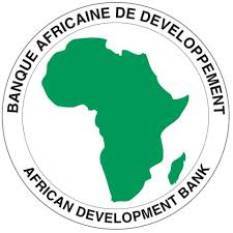The financing will support 500,000 smallholder farmer households in the Ethiopian states of Afar, Amhara, Oromia, and Somali, to increase wheat productivity from three to four tons per hectare
SEMERA / Ethiopia, 13 June 2024: The African Development Bank Group (www.AfDB.org) and the government of Ethiopia, in partnership with the Netherlands, fertilizer company OCP-Africa, and the Global Center on Adaptation (GCA), have launched an ambitious project to transform Ethiopia from a wheat importer to a self-sufficient producer and exporter.
The total cost of the Climate Resilient Wheat Value Chain Development (CREW) Project is $94 million. The African Development Fund (ADF), the concessional arm of the African Development Bank Group, is providing a grant of $54 million. The Netherlands will contribute a grant of $20 million, while OCP-Africa and the Government of Ethiopia will each provide grants of $10 million.
Additionally, the Global Center on Adaptation (GCA) will extend a grant of $300,000 for the project as part of the Africa Adaptation Acceleration Program initiative (AAAP). AAAP is integrating climate risk assessment and digital adaptation solutions into the wheat value chain, supporting capacity building through deployment of digital climate advisory services (DCAS), and co-designing digital adaptation solutions in a wheat farmer registration system.
The financing will support 500,000 smallholder farmer households in the Ethiopian states of Afar, Amhara, Oromia, and Somali, to increase wheat productivity from three to four tons per hectare, generating an additional 1.62 million tons of wheat. The project will also support expansion of irrigation into the lowlands of Afar and Somali regions. It is expected to benefit 2.3 million people, 50 percent of them women, by increasing household incomes, creating jobs and entrepreneurship opportunities, and strengthening food and nutrition security.
The CREW project has two main components. The first focuses on improving wheat farming using climate-friendly methods through the development of better seeds, improving soil health, rehabilitating and building irrigation systems and access roads, and enhancing private sector-led sustainable farm mechanisation.
The second component entails the expansion of post-harvest and market infrastructure and enabling access to agri-finance through innovative mechanisms.
The launch took place in Semera, Afar Regional State in May. The country's Minister of Agriculture, Dr Girma Amente, officially launched the project. In his statement, he emphasised the importance of agriculture for the Ethiopian economy; the sector contributes over one-third of GDP and employs 65 percent of the population. He stressed that wheat is a priority crop in the Government's Agricultural Development Plan, and noted that "the CREW project is aligned with over 80 percent of the objectives of Ethiopia's Ten-Year Development Plan, the overarching development agenda for the country," he said.
The President of Afar Regional State, Awol Arba was also present. He welcomed the project, which he said has great potential for irrigated wheat development in his state.
The Bank Group's Deputy Director General for East Africa, Dr Abdul Kamara, who also attended, said: "The CREW project will complement the Bank's current investments of about $1.2 billion in Ethiopia, across the key sectors of energy, transport, agriculture, water and sanitation, and economic governance. It is designed to scale up and sustain the impressive results of the Wheat Revolution in Ethiopia. Following the successful and nationwide deployment of heat-tolerant wheat varieties, irrigated wheat areas rapidly expanded, and wheat yields increased on average from two to four tons per hectare. The Bank is proud to be a leading financier in these critical areas seeking to accelerate Ethiopia's economic transformation and development."
Tiest Soondal, Deputy Head of Cooperation at the Netherlands Embassy in Ethiopia, said: "The Kingdom of the Netherlands is the largest EU investor in Ethiopia and is committed to addressing the nexus of humanitarian, development, and food security goals. The CREW project is designed to address these objectives."
"OCP Africa support for this project will address, among others, the salinity and acidity issues affecting tens of millions of hectares," said OCP-Africa CEO Dr Mohamed Anouar Jamali. "This includes developing site-specific soil health and fertility solutions based on comprehensive assessments of soil, climate, and cropping systems to provide science-based recommendations, and conducting a comprehensive programme of capacity building and farmer training in best agricultural practices, based on the principles underlying 4R+ and Integrated Soil Fertility Management."























